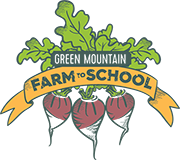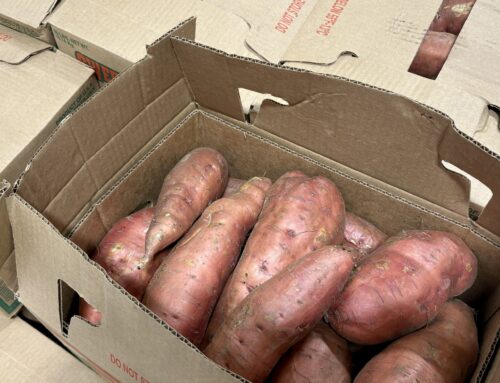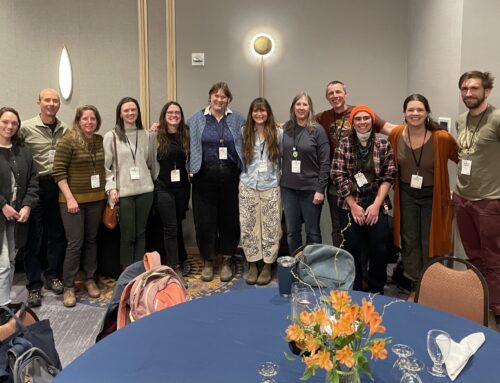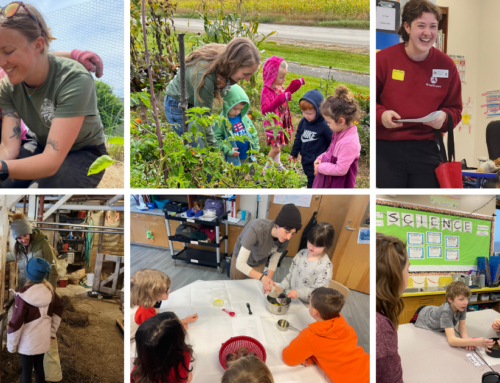By Emma Trainor
1. Support Farmers and Your Local Economy
Large scale farms from out-of-state and industrial agriculture account for a significant percentage of Vermonters’ total food consumption. According to Ellen Kahler, the Executive Director of the Vermont Sustainable Jobs Fund (VSJF), of all the money Vermonters spend on food and drink, about only 14% is spent on local products. Despite Vermont’s robust farming infrastructure, we are still giving most of our money to out-of-state agriculture. When we have the ability to purchase locally grown fruits, vegetables, meats, dairy and maple products, we are building a local economy that is supporting our individual and collective well-being. When farmers can profit from food production, they are also less likely to sell their land for development, maintaining access to nature, quiet, and healthy ecosystems. For a list of Vermont’s farmer’s markets, go to NOFA’s list of VT Farmer’s Markets to find one near you!
2. Reduce Emissions and Waste
Buying local food is better for the environment. Food shipped into Vermont from out-of-state not only costs more, but contributes to greenhouse gas emissions and other pollution. Food miles and packaging are significantly reduced when purchasing locally. If you are interested in learning more about the mileage of importing certain foods, check out this free Food Miles Calculator.
3. Build Community
Farmers markets, Community Supported Agriculture (CSA), and simply bonding with others over cooking delicious home-grown and Vermont-made products fosters community connection that center care, well-being, reciprocity and appreciation for where our food comes from. Farmers markets are buzzing with life and are a great place to meet the people who are growing our food as well as a place to meet others who have a passion for supporting a local food economy. CSAs give communities the opportunity to build deeper relationships with their local farmers while supporting their work. If you’re interested in finding upcoming on-farm community events, check out NOFAVT’s Event Calendar for more opportunities to build community this season!
4. Enjoy Better Taste and Freshness
Have you ever tried a tomato fresh from the garden, compared to a grocery store tomato? The difference is undeniable! If you are passionate about gardening, are a devoted attendee of local farmers markets, or are yourself a farmer, you know that the difference in taste between fresh food and that which has been imported, is worth the effort it takes to grow and harvest it in the first place. This is partially due to the fact that local fruits and vegetables are harvested at their peak ripeness, which contributes to the fullness of flavor. When fruits or veggies have to be imported long distances, they are often picked before fully ripening. In addition to this, the healthier and more nutrient rich the soil is that our food is growing in, oftentimes the more flavorful the fruits and vegetables are as well. Small scale Vermont farms have soil that is filled with more life and nutrients than large scale, industrial agriculture that is bringing produce in from out-of-state.
5. Cultivate a Culture that Honors Food as Medicine
Food nourishes us, heals us, and brings us joy! When we choose to buy locally, we celebrate and acknowledge this, oftentimes knowing the people who grew the food as our friends and neighbors. We can trust that Vermont farmers and gardeners put a tremendous amount of time and energy into ensuring that the food going to consumers is healthy and delicious. When we purchase local food, we are putting our energy directly into weaving a culture that honors food as life-giving, medicinal, and essential to our collective thriving, and that acknowledges the farmers, lands, and waters that make this possible.





